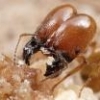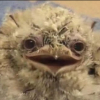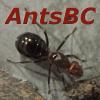Hi, I need advice on caring generally for Pheidole ants. Are they picky eaters? Will they generally eat mealworms and crickets? Are they a fan of honey? How long until you start seeing majors and super-majors? Any help with these questions or any extra info would be very much appreciated. Thanks.
- Formiculture.com
- Forums
- Gallery
- Members
- Member Map
- Chat




















